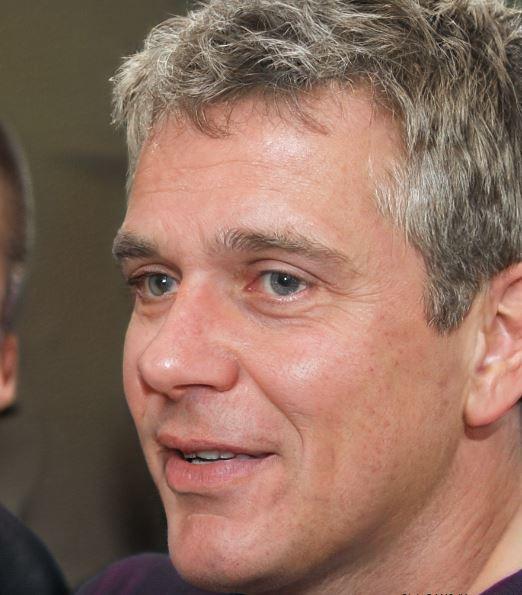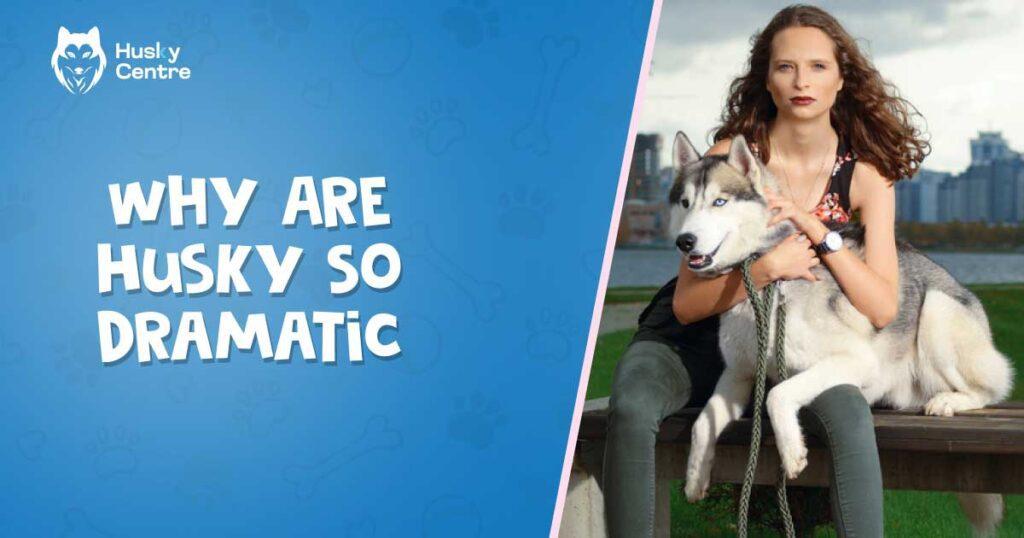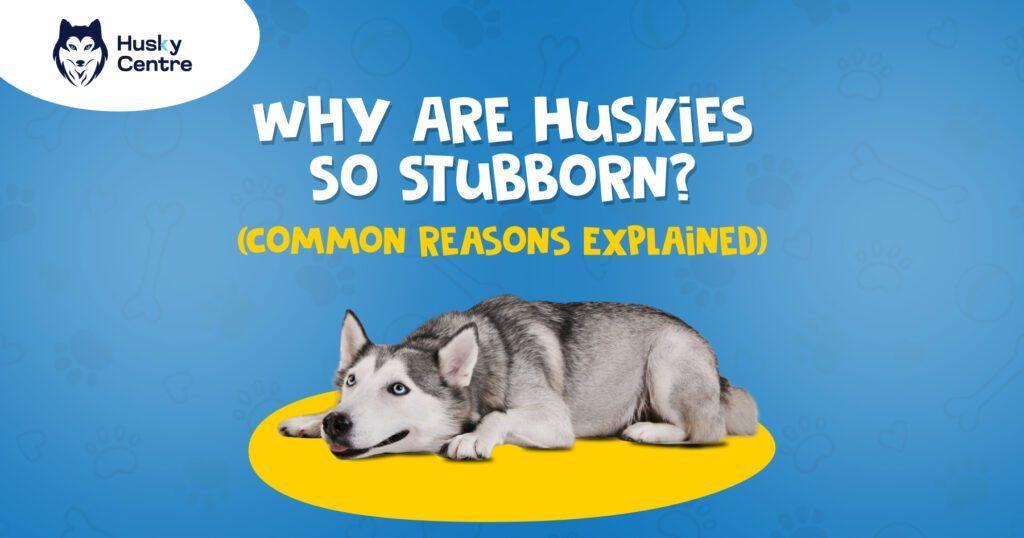Huskies are dramatic due to their vocal nature and expressive personalities. They communicate emotions through howling, whining, and other sounds.
Huskies, known for their striking appearance and energetic disposition, are also infamous for their dramatic behavior. This breed is highly vocal, often using a range of sounds to express their feelings. Their dramatic nature stems from their need to communicate with humans and other dogs.
Huskies are intelligent and require mental and physical stimulation to stay happy. Their expressive personalities and vocal antics make them unique and entertaining pets. Understanding their behavior can help owners address their needs effectively. Huskies’ dramatic expressions are an integral part of their charm and appeal, making them beloved companions.
Personality Traits Of Huskies
Huskies are known for their dramatic personalities, often making them the center of attention. Their unique traits make them stand out among other dog breeds. Understanding the personality traits of Huskies can help explain why they are so dramatic.
Playful And Energetic Nature
Huskies have a playful and energetic nature that keeps them constantly on the move. They love to run, jump, and play, making them great companions for active individuals or families. Their high energy levels often lead to dramatic displays of excitement and joy.
Some key characteristics of their playful and energetic nature include:
- High Energy Levels: Huskies need plenty of exercise to stay happy and healthy.
- Love for Play: They enjoy playing games like fetch, tug-of-war, and even hide-and-seek.
- Adventurous Spirit: Huskies love exploring new places and can be quite curious.
Here is a table that summarizes their playful and energetic traits:
| Trait | Description |
| High Energy | Requires daily exercise and activities |
| Playful | Enjoys interactive games and toys |
| Adventurous | Loves exploring and discovering new environments |
Their playful and energetic nature often leads to dramatic behaviors when they are excited or happy. This can include jumping, running in circles, and even playful barking.
Vocalizations And Expressive Behaviors
Huskies are known for their vocalizations and expressive behaviors. They often use their voices to communicate with their owners and other dogs. This can include howling, whining, and even “talking” in a unique way.
Some common vocalizations and expressive behaviors include:
- Howling: Huskies are famous for their wolf-like howls, which they use to communicate or express emotions.
- Whining: They may whine when they want attention or if they are feeling anxious.
- Talking: Some Huskies have been known to mimic human speech sounds, creating a “talking” effect.
Here is a table that summarizes their vocal and expressive traits:
| Vocalization | Description |
| Howling | Used for communication and expressing emotions |
| Whining | Signals need for attention or anxiety |
| Talking | Unique mimicry of human speech sounds |
Their vocalizations and expressive behaviors make Huskies seem dramatic. They often draw attention to themselves with their unique sounds and expressive faces.
Reasons Behind Their Dramatic Behavior
Huskies are known for their dramatic behavior. Their vocal expressions, unique personalities, and sometimes over-the-top reactions often leave people amused and puzzled. This dramatic behavior stems from several fascinating reasons that are deeply rooted in their nature and background. Understanding these reasons can help you better appreciate and manage your Husky’s antics.
High Intelligence And Need For Stimulation
Huskies are incredibly intelligent dogs. Their high intelligence means they need plenty of mental stimulation. Without enough challenges, they get bored easily. Boredom can lead to dramatic behavior as they look for ways to entertain themselves.
Here are some signs of a bored Husky:
- Excessive howling or barking
- Chewing on furniture or shoes
- Digging in the yard
Engaging your Husky in activities can help reduce this behavior. Consider the following:
- Interactive toys and puzzles
- Agility training
- Frequent walks and runs
A Husky’s intelligence also means they can be very expressive. They often use vocalizations and body language to communicate their needs and feelings. This expressiveness can come across as dramatic, but it’s just their way of interacting with the world.
Pack Mentality And Social Needs
Huskies are pack animals. They have a strong need for social interaction. This pack mentality makes them crave companionship and attention. When they feel lonely or neglected, they can exhibit dramatic behavior to get your attention.
Key social needs of a Husky include:
- Regular interaction with family members
- Playtime with other dogs
- Consistent routines and structure
Here is a table summarizing the key social needs:
| Social Need | Description |
| Family Interaction | Huskies need to spend time with their human family members. |
| Playtime with Dogs | They enjoy playing and socializing with other dogs. |
| Routine and Structure | Consistent routines make them feel secure and happy. |
Meeting these social needs helps reduce dramatic behavior. A well-socialized Husky is more and content.
Sensitivity To Human Emotions And Environments
Huskies are very sensitive to human emotions. They pick up on your mood and react accordingly. If you’re stressed or upset, your Husky may become anxious or overly dramatic in response.
Key factors affecting their sensitivity include:
- Changes in household environment
- Your emotional state
- Unfamiliar visitors or situations
Here’s how you can help your sensitive Husky:
- Maintain a calm and positive environment
- Provide a safe and comfortable space
- Introduce changes gradually
Understanding your Husky’s sensitivity can help you manage their dramatic reactions. By creating a stable and loving environment, you can ensure your Husky feels secure and less inclined to act out dramatically.
Common Dramatic Behaviors In Huskies
Huskies are known for their dramatic behaviors. Their unique traits often make them stand out among other dog breeds. Understanding these behaviors can help in managing and enjoying life with a Husky. Here, we explore the common dramatic behaviors in Huskies.
Howling
Huskies are famous for their howling. This behavior can be seen as a form of communication. Huskies howl to attract attention, communicate with other dogs, and express emotions.
Reasons why Huskies howl:
- Loneliness: When left alone, they may howl to express their loneliness.
- Boredom: Huskies need mental and physical stimulation. Without it, they may howl out of boredom.
- Response to Sounds: They often howl in response to high-pitched sounds like sirens or music.
Understanding why your Husky howls can help address the root cause. Providing plenty of exercise, mental stimulation, and company can reduce excessive howling.
Vocalizations
Huskies are not just howlers; they have a wide range of vocalizations. They use different sounds to communicate their needs and feelings.
Common Husky vocalizations include:
- Whining: Indicates discomfort, anxiety, or a desire for attention.
- Talking: Huskies often “talk” using a mix of barks, whines, and other sounds.
- Growling: This can be playful or a warning, depending on the context.
Each vocalization serves a purpose. Paying attention to your Husky’s sounds can help you understand their needs and emotions.
Expressing Discontent
Huskies are known for their expressive faces and body language. They show discontent through various dramatic actions.
Signs of discontent in Huskies:
- Pouting: A Husky may pout by lying down with a sad expression.
- Ignoring: They might ignore commands or walk away when unhappy.
- Destructive Behavior: Chewing on furniture or other items can indicate frustration or boredom.
Addressing the cause of discontent, such as providing more exercise or changing routines, can help in managing these behaviors.
Husky Flop
One of the most dramatic behaviors is the “Husky Flop.” This involves the Husky dramatically flopping onto the ground.
Reasons for the Husky Flop:
- Seeking Attention: They may flop down to get your attention.
- Expressing Discontent: Flopping can be a form of protest.
- Relaxation: Sometimes, it’s just a comfortable way to lie down.
Understanding the context of the flop can help in interpreting what your Husky is trying to communicate. It’s often a mix of seeking attention and expressing feelings.
Managing A Dramatic Husky
Huskies are known for their dramatic behavior. They howl, whine, and sometimes throw tantrums. Managing a dramatic Husky can be challenging but rewarding. Understanding their needs and behavior is key. Let’s explore how to manage a dramatic Husky effectively.
Training Techniques To Reduce Over-dramatics
Training helps manage a Husky’s dramatic behavior. Consistency is crucial. Here are some techniques:
- Positive Reinforcement: Reward good behavior with treats or praise. This encourages positive actions.
- Ignore Attention-Seeking Behavior: Don’t reward whining or howling with attention. This reduces over-dramatics.
- Basic Commands: Teach commands like “sit,” “stay,” and “quiet.” These control their actions and reduce drama.
Use a training schedule to track progress:
| Week | Focus | Reward |
| 1 | Basic Commands | Treats |
| 2 | Ignore Whining | Praise |
| 3 | Quiet Command | Treats and Praise |
Providing Mental And Physical Stimulation
Huskies are active and intelligent. They need both physical and mental stimulation to prevent boredom and drama.
- Daily Exercise: Huskies need at least an hour of exercise daily. This includes walks, runs, or playtime.
- Interactive Toys: Use puzzle toys to keep their minds engaged. These toys challenge their intelligence.
- Training Games: Play games like fetch or hide-and-seek. These provide both physical and mental stimulation.
Here’s a sample daily routine for a Husky:
| Time | Activity |
| 7:00 AM | Morning Walk |
| 12:00 PM | Interactive Toy Time |
| 5:00 PM | Evening Run |
| 8:00 PM | Training Games |
Establishing A Consistent Routine
A consistent routine helps reduce a Husky’s dramatic behavior. They thrive on predictability.
- Set Feeding Times: Feed your Husky at the same times daily. This helps them know what to expect.
- Regular Exercise: Schedule exercise at the same times. This reduces anxiety and over-dramatics.
- Sleep Schedule: Ensure your Husky has a consistent bedtime. This promotes good behavior and reduces stress.
Here’s a sample daily schedule for a Husky:
| Time | Activity |
| 6:30 AM | Wake Up and Breakfast |
| 7:00 AM | Morning Walk |
| 12:00 PM | Lunch |
| 5:00 PM | Evening Run |
| 8:00 PM | Dinner |
| 9:00 PM | Bedtime |
Frequently Asked Questions
Why Are Huskies So Vocal?
Huskies are vocal because they are naturally expressive. They use howling and whining to communicate their needs and emotions. Their vocal nature is part of their social behavior, inherited from their wolf ancestors.
Do Huskies Have Strong Personalities?
Yes, huskies have strong personalities. They are known for their independence and stubbornness. This breed is intelligent and requires consistent training. Their strong-willed nature makes them both challenging and rewarding pets.
Are Huskies Emotional Dogs?
Huskies are very emotional dogs. They express their feelings openly through their body language and vocalizations. Their dramatic behavior often reflects their high energy and need for social interaction.
Why Do Huskies Throw Tantrums?
Huskies throw tantrums because they are highly expressive and independent. They may do this when they are bored or seeking attention. Consistent training and mental stimulation can help manage this behavior.
Conclusion
Huskies are dramatic due to their expressive nature, intelligence, and high energy levels. Their vocalizations and antics are part of their charm. Understanding their behavior helps in better training and bonding. Embrace their drama for a joyful, entertaining companionship. Loving a Husky means accepting their unique and spirited personality.


Meet Jarred, the heart and soul behind HukyCentre. With a deep affection for furry friends, he pours his passion into every word he writes. His genuine love for dogs shines through in his engaging and informative content. As a dedicated dog enthusiast, Jarred’s goal is to share valuable insights and tips that resonate with fellow dog lovers. Join Jarred on the journey as he celebrates the joy and companionship that dogs bring into our lives.



